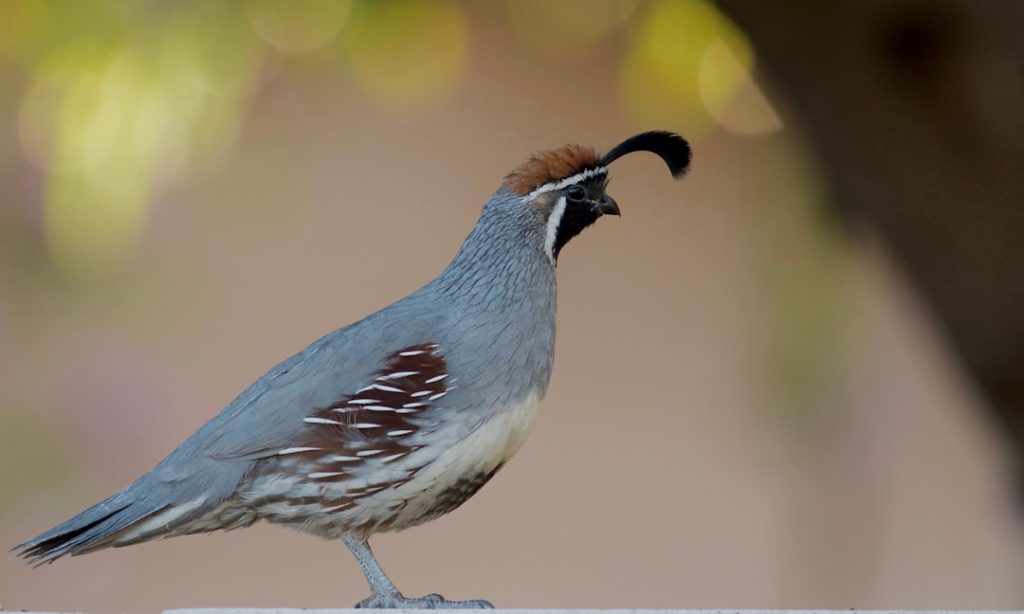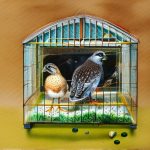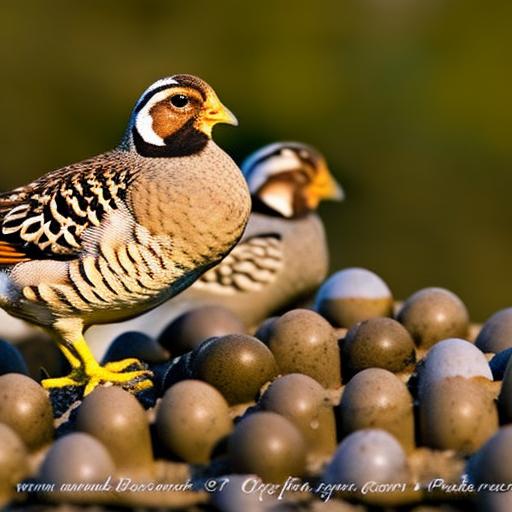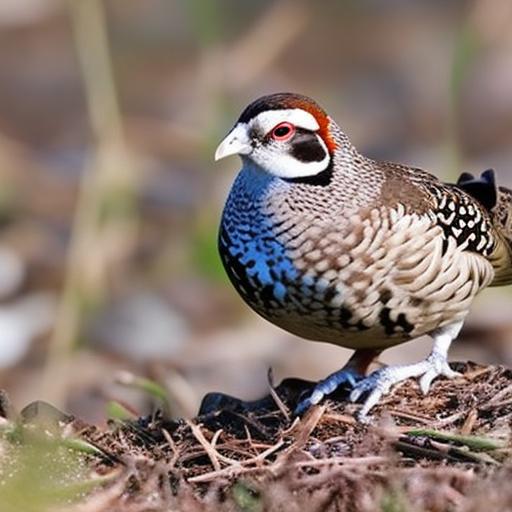Proper quail breeding cage size is of utmost importance when it comes to the health and productivity of quails. Quails are small birds that require adequate space to move around, exercise, and exhibit natural behaviors. Inadequate cage size can lead to stress, aggression, and even physical injuries among quails. Additionally, overcrowding in small cages can lead to poor air quality and an increased risk of disease transmission. Therefore, providing the right cage size is essential for ensuring the well-being and optimal growth of quails in a breeding environment.
Furthermore, proper cage size is crucial for maximizing the reproductive potential of quails. Inadequate space can lead to decreased egg production, poor hatchability, and increased mortality rates among chicks. On the other hand, providing sufficient space in breeding cages can reduce stress levels, encourage natural mating behaviors, and ultimately lead to higher fertility rates and healthier offspring. Therefore, it is essential for quail breeders to prioritize the provision of adequate cage size to ensure the overall success of their breeding operations.
Table of Contents
- 1 Factors to Consider When Determining Quail Breeding Cage Size
- 2 Recommended Quail Breeding Cage Size
- 3 Benefits of Providing Adequate Cage Size for Quails
- 4 Consequences of Inadequate Quail Breeding Cage Size
- 5 Tips for Maintaining Quail Breeding Cage Size
- 6 Ensuring Optimal Quail Breeding Cage Size for Healthy and Productive Quails
- 7 FAQs
- 7.1 What is the ideal cage size for breeding quails?
- 7.2 Why is cage size important for breeding quails?
- 7.3 What are the consequences of having a small breeding cage for quails?
- 7.4 How many quails can be housed in a breeding cage of the ideal size?
- 7.5 Are there any specific requirements for the design of a quail breeding cage?
Key Takeaways
- Proper quail breeding cage size is crucial for the health and productivity of quails.
- Factors to consider when determining quail breeding cage size include the number of quails, their size, and their behavior.
- The recommended quail breeding cage size is at least 1 square foot per quail, with larger cages being preferable for optimal health and productivity.
- Providing adequate cage size for quails can lead to reduced stress, improved egg production, and overall better welfare for the birds.
- Inadequate quail breeding cage size can result in increased aggression, lower egg production, and higher risk of injury or disease for the quails.
Factors to Consider When Determining Quail Breeding Cage Size
When determining the appropriate quail breeding cage size, several factors must be taken into consideration. Firstly, the breed and size of the quails must be considered, as different breeds may have varying space requirements. Larger breeds may require more space to move around comfortably, while smaller breeds may be content with slightly less space. Additionally, the age and reproductive status of the quails should also be taken into account. Breeding pairs or groups may require more space than individual birds to accommodate mating behaviors and territorial disputes.
Another important factor to consider is the duration of time that quails will spend in their cages. If quails are kept in cages for extended periods, such as during the breeding season, it is crucial to provide ample space for exercise and natural behaviors. Furthermore, environmental factors such as temperature and humidity levels should be considered when determining cage size, as these factors can impact the overall comfort and well-being of the quails. Overall, a thorough understanding of the specific needs and behaviors of quails is essential for determining the most suitable breeding cage size.
Recommended Quail Breeding Cage Size
The recommended quail breeding cage size can vary depending on the specific needs of the quails and the breeding setup. However, as a general guideline, it is recommended to provide a minimum of 1 square foot of floor space per quail in breeding cages. This allows for adequate movement and prevents overcrowding, which can lead to stress and aggression among quails. For breeding pairs or groups, larger cages should be provided to accommodate mating behaviors and territorial disputes.
In addition to floor space, vertical space is also important when determining cage size for quails. Quails are ground-dwelling birds that also enjoy perching and roosting off the ground. Therefore, cages should be tall enough to allow for natural perching behaviors and provide enough headroom for the quails to move comfortably. Providing a variety of perches and platforms within the cage can also help maximize the use of vertical space and promote natural behaviors among quails. Overall, the recommended quail breeding cage size should prioritize both floor space and vertical space to ensure the well-being and productivity of the birds.
Benefits of Providing Adequate Cage Size for Quails
Providing adequate cage size for quails offers a multitude of benefits for both the birds and the breeders. Firstly, ample space allows quails to exhibit natural behaviors such as dust bathing, foraging, and perching, which are essential for their physical and psychological well-being. This can lead to reduced stress levels, improved overall health, and increased reproductive success among quails. Additionally, providing sufficient space can help prevent aggression and injuries caused by overcrowding, ultimately leading to a more harmonious breeding environment.
Furthermore, adequate cage size can contribute to improved egg production and hatchability rates among quails. When quails are provided with enough space to move around and exercise, they are more likely to be in optimal physical condition for breeding. This can result in higher fertility rates, better egg quality, and increased chick survival rates. Ultimately, providing adequate cage size for quails can lead to higher productivity and profitability for breeders, making it a worthwhile investment in the long run.
Consequences of Inadequate Quail Breeding Cage Size
Conversely, inadequate quail breeding cage size can have detrimental consequences for both the birds and the breeding operation as a whole. Overcrowding in small cages can lead to stress, anxiety, and aggressive behaviors among quails. This can result in feather picking, cannibalism, and even physical injuries caused by pecking and fighting. In addition to the negative impact on the well-being of the birds, overcrowding can also lead to decreased egg production, poor hatchability rates, and increased chick mortality.
Furthermore, inadequate cage size can contribute to poor air quality within the breeding environment. Overcrowded cages can lead to a buildup of ammonia from droppings, as well as increased levels of dust and dander. Poor air quality can have detrimental effects on the respiratory health of quails, leading to an increased risk of respiratory infections and other health issues. Additionally, overcrowded cages can make it difficult to maintain proper hygiene and cleanliness, further increasing the risk of disease transmission among quails. Therefore, it is crucial for breeders to avoid the consequences of inadequate cage size by prioritizing the provision of sufficient space for their quails.
Tips for Maintaining Quail Breeding Cage Size
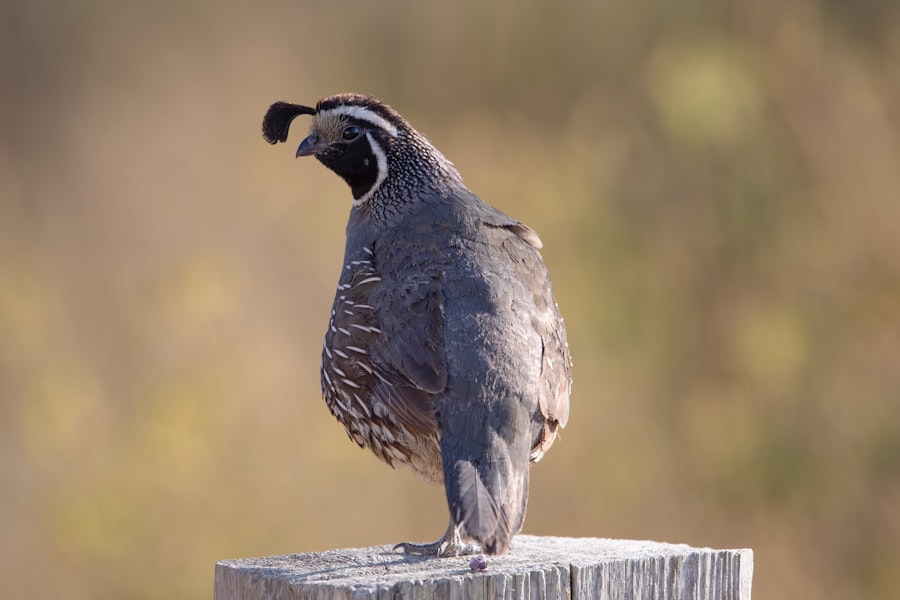
Maintaining proper quail breeding cage size requires careful planning and regular monitoring to ensure that the needs of the birds are being met. One important tip is to regularly assess the condition of the cages and make any necessary adjustments to accommodate changes in bird population or behavior. This may involve reconfiguring cage layouts, adding or removing perches and platforms, or providing additional space during peak breeding seasons.
Another important tip is to prioritize cleanliness and hygiene within the cages to prevent overcrowding due to waste buildup. Regularly removing droppings, replacing bedding material, and providing adequate ventilation can help maintain a healthy environment within the cages. Additionally, providing enrichment activities such as dust baths, foraging opportunities, and perches can help keep quails active and engaged within their allotted space.
Furthermore, it is essential to monitor the behavior and health of the quails regularly to identify any signs of stress or aggression that may be related to inadequate cage size. Observing mating behaviors, territorial disputes, and overall activity levels can provide valuable insights into whether the current cage size is meeting the needs of the birds. Overall, maintaining proper quail breeding cage size requires ongoing attention and proactive management to ensure the well-being and productivity of the birds.
Ensuring Optimal Quail Breeding Cage Size for Healthy and Productive Quails
In conclusion, proper quail breeding cage size is essential for ensuring the health and productivity of quails in a breeding environment. By providing adequate floor space and vertical space within the cages, breeders can promote natural behaviors, reduce stress levels, and maximize reproductive success among their quails. Additionally, maintaining proper cage size can help prevent aggression, injuries, and disease transmission within the breeding operation.
To achieve optimal quail breeding cage size, breeders must consider factors such as breed and size of the quails, their reproductive status, and environmental conditions. By prioritizing cleanliness, hygiene, and regular monitoring of bird behavior, breeders can ensure that their quails have sufficient space to thrive and reproduce successfully. Ultimately, providing adequate cage size for quails is not only beneficial for the birds’ well-being but also contributes to higher productivity and profitability for breeders in the long run.
When it comes to quail breeding, the size of the cage is crucial for the well-being and productivity of the birds. In a related article on PoultryWizard, “What Vegetables Do Quails Eat?” discusses the dietary needs of quails and how providing a balanced diet can contribute to their overall health and egg production. Understanding the dietary requirements of quails is just as important as ensuring they have adequate space in their cages. To learn more about creating a suitable environment for quail breeding, check out the article here.
FAQs
What is the ideal cage size for breeding quails?
The ideal cage size for breeding quails is 24 inches in length, 24 inches in width, and 10 inches in height. This size allows for enough space for the quails to move around and breed comfortably.
Why is cage size important for breeding quails?
Cage size is important for breeding quails because it affects the quails’ comfort, health, and breeding behavior. A larger cage size allows the quails to move around, exercise, and exhibit natural behaviors, which can lead to successful breeding.
What are the consequences of having a small breeding cage for quails?
Having a small breeding cage for quails can lead to stress, aggression, and poor breeding success. Quails may become territorial and exhibit aggressive behavior towards each other, leading to unsuccessful breeding attempts.
How many quails can be housed in a breeding cage of the ideal size?
The ideal cage size of 24x24x10 inches can comfortably house 1 male and 2-3 female quails for breeding purposes. It is important to provide enough space for each quail to prevent overcrowding and aggression.
Are there any specific requirements for the design of a quail breeding cage?
The design of a quail breeding cage should include features such as a solid floor, nesting boxes, perches, and adequate ventilation. These features are important for the quails’ comfort, health, and breeding behavior.
Meet Walter, the feathered-friend fanatic of Florida! Nestled in the sunshine state, Walter struts through life with his feathered companions, clucking his way to happiness. With a coop that’s fancier than a five-star hotel, he’s the Don Juan of the chicken world. When he’s not teaching his hens to do the cha-cha, you’ll find him in a heated debate with his prized rooster, Sir Clucks-a-Lot. Walter’s poultry passion is no yolk; he’s the sunny-side-up guy you never knew you needed in your flock of friends!

